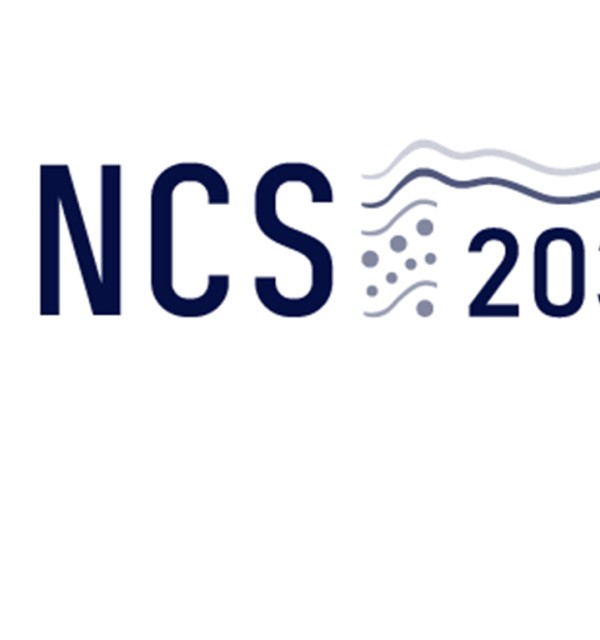Do you want to lead in the future energy transition?
2 years (4 semesters)
English
120
August every year

This MSc programme will prepare you for a career in the energy industry where the next generation of professionals will be applying cutting-edge technology and new ways of thinking to transform the future of energy production. The 2-year study programme will educate you and prepare you for a career in a dynamic and international working environment.
You can find employment in the energy sector either working in oil and gas exploration or in carbon capture utilisation and sequestration (CCUS), mining industry, road and tunnel construction, and research and development. The diverse range of exciting opportunities is due to in-depth topics of geology, fluid flow in porous media, CO2 and H2 storage, increased oil recovery, energy transition, and decision-making.
The energy sector requires professionals who understand the intricacies and importance of transitioning to a sustainable energy mix. A combined education in geosciences and reservoir engineering will prepare you to be a critical part of the future low-carbon world. Join our study programme and be a part of the changing future.
The MSc in Energy, Reservoir and Earth Sciences is advantageously connected to the National Centre for Sustainable Subsurface Utilisation of the Norwegian Continental Shelf - NCS2030. Among its aims is to help Norway meet the United Nation's Sustainable Development Goals to reach net-zero emission goals in 2030. One major focus of the NCS2030 is education. Interested students may use the opportunity to work with project partners for internships, practical professional training, and thesis studies.
Admission requirements
Bachelor's degree in natural sciences, engineering, or equivalent, which includes at least 10 ECTS credits in mathematics
Admission to this master's programme requires a minimum grade average comparable to a Norwegian C (according to ECTS Standards) in your bachelor's degree. Applicants with a result Second-class lower Division or lower are not qualified for admission.
Supplementary rules for admission (PDF)
A bachelor's degree within geosciences or reservoir engineering or a related field is required.
The degree must include minimum 30 ECTS credits in geosciences, reservoir engineering, and/or subsurface resources.
All applicants must have at least 20 ECTS credits in mathematics/statistics/calculus (with minimum 10 ECTS credits in mathematics and minimum 10 ECTS credits in mathematics/statistics).
Admission to this master's programme requires a minimum grade average comparable to a Norwegian C (according to ECTS Standards) in your bachelor's degree. Applicants with a result Second-class lower Division or lower are not qualified for admission.
Application and admission
Contact
For inquiries regarding admission to international Master's programmes, send an email to: admissions@uis.no
Student life at UiS
Related studies and articles
Frequently asked questions
See some of the most common questions about this study programme.
What career options do I have with this degree?
Depending on the chosen elective courses, graduates of the programme can pursue a career in a range of different roles including geologist, geophysicist, petrophysicist, engineering geologist, subsurface data scientist and reservoir engineer. While most UiS graduates are traditionally employed in the oil and gas industry, a growing number of geoscientists are working in other sectors with renewable energy, mining, construction, waste, and water management. In addition, candidates from this programme can work in academic and research institutions or pursue a PhD programme related to research and development technology for the subsurface and related areas. Graduates prepared to embark on an academic or research career may pursue a PhD programme in disciplines as varied as the professional career paths.
What language is the programme?
English.
I'm an international student and interested in applying for this programme. Where can I find more information related to international admissions?
You can find more information at this page.
Can I work while I study?
This is a full-time programme, but students may find time to work a part-time job during the study. Maintaining full-time employment during this program is not recommended.
I don’t have an engineering BSc. Can I still take this degree?
Yes. This MSc is not an engineering degree. Please check the educational prerequisites.
Since this degree has a geology component, are there field trips?
Yes. There are required field trips as part of the courses because we cannot learn everything in the classroom.
Are there student organizations or clubs?
There is an active student life within the department with professional associations and a student-run club for all students enrolled in BSc or MSc programmes in the Department of Energy Resources.
Is it possible to take the study as a distance student?
Some of the subjects included in the study program may be taken digitally as a distance student. However, several of the subjects on the program have compulsory laboratory activities, which requires that one is present. You can always consult with the study coordinator or lecturers if you are wondering if a specific course can be completed digitally.
Can I take courses in Svalbard as part of the degree?
Yes, as a student with us, we recommend that you take courses at the University Center on Svalbard (UNIS) as part of your degree in Energy, Reservoir and Earth Sciences. UNIS has available courses in both the spring semester, the autumn semester and the summer course. Feel free to contact UNIS contact Karina Sanni: karina.sanni@uis.no or check UNIS's website for more information.
When and where can I travel on exchange?
We recommend the 3rd semester as an exchange semester, but it is also possible to travel on an exchange in the 2nd semester. We have several agreements in and outside Europe.
Can I apply for single courses at UiS?
Contact
Faculty Administration TN
Kontor for utdanningsadministrative tjenester
Department of Energy Resources







